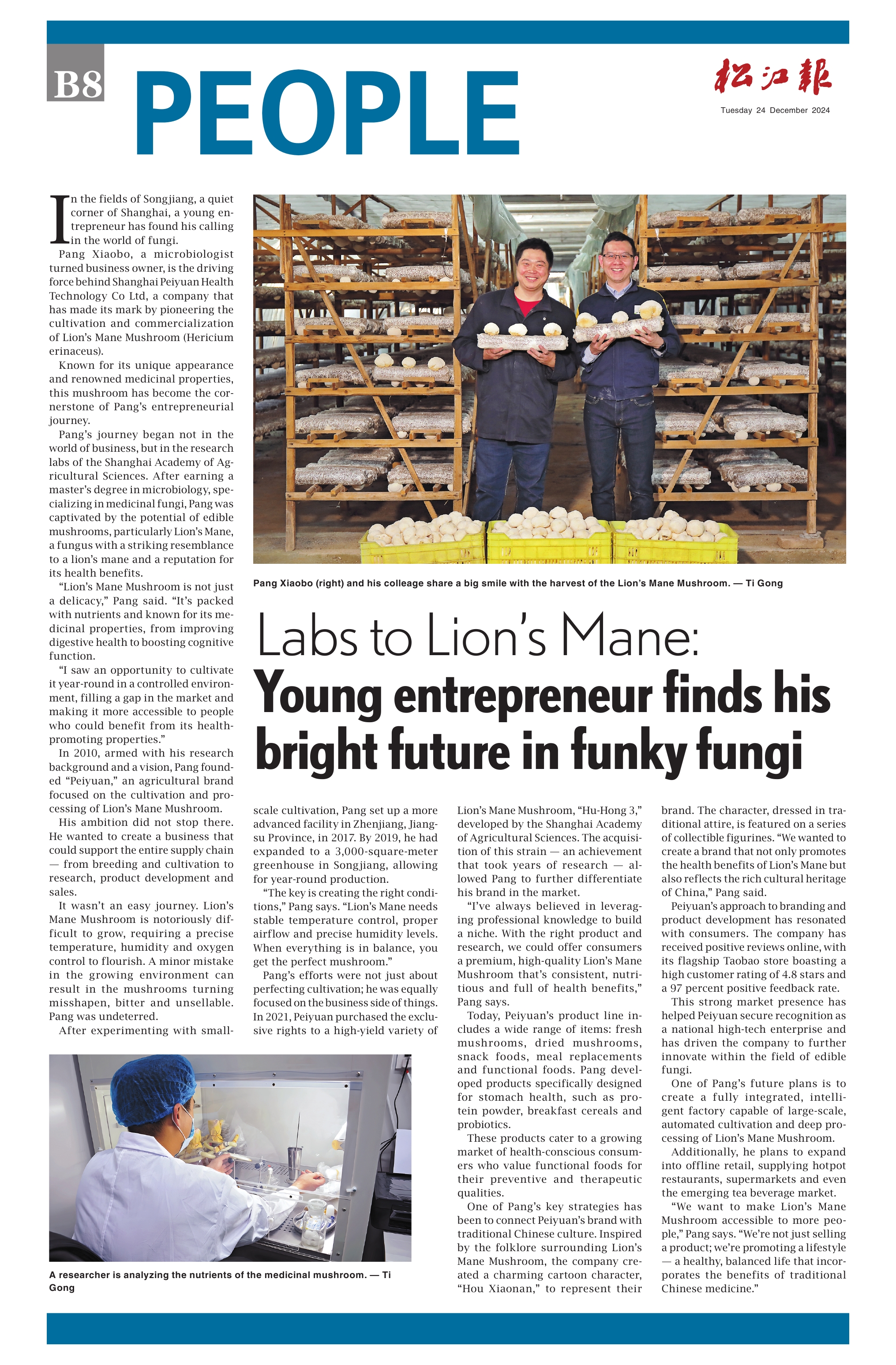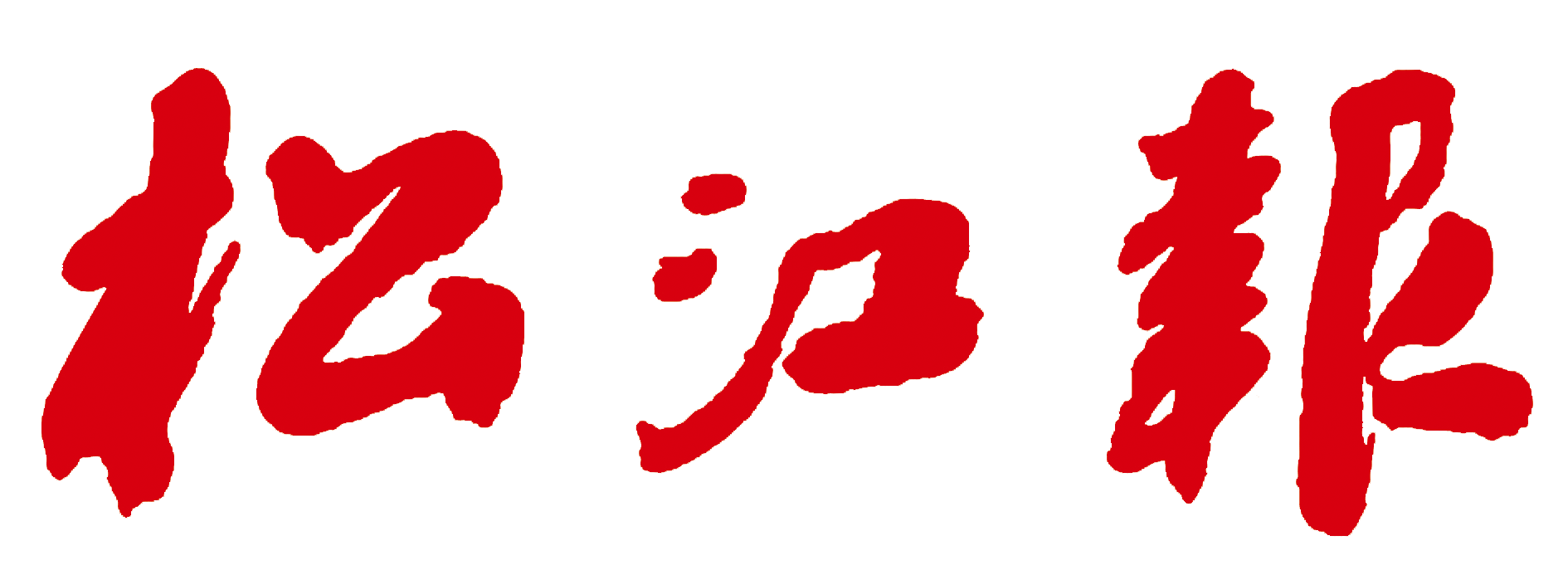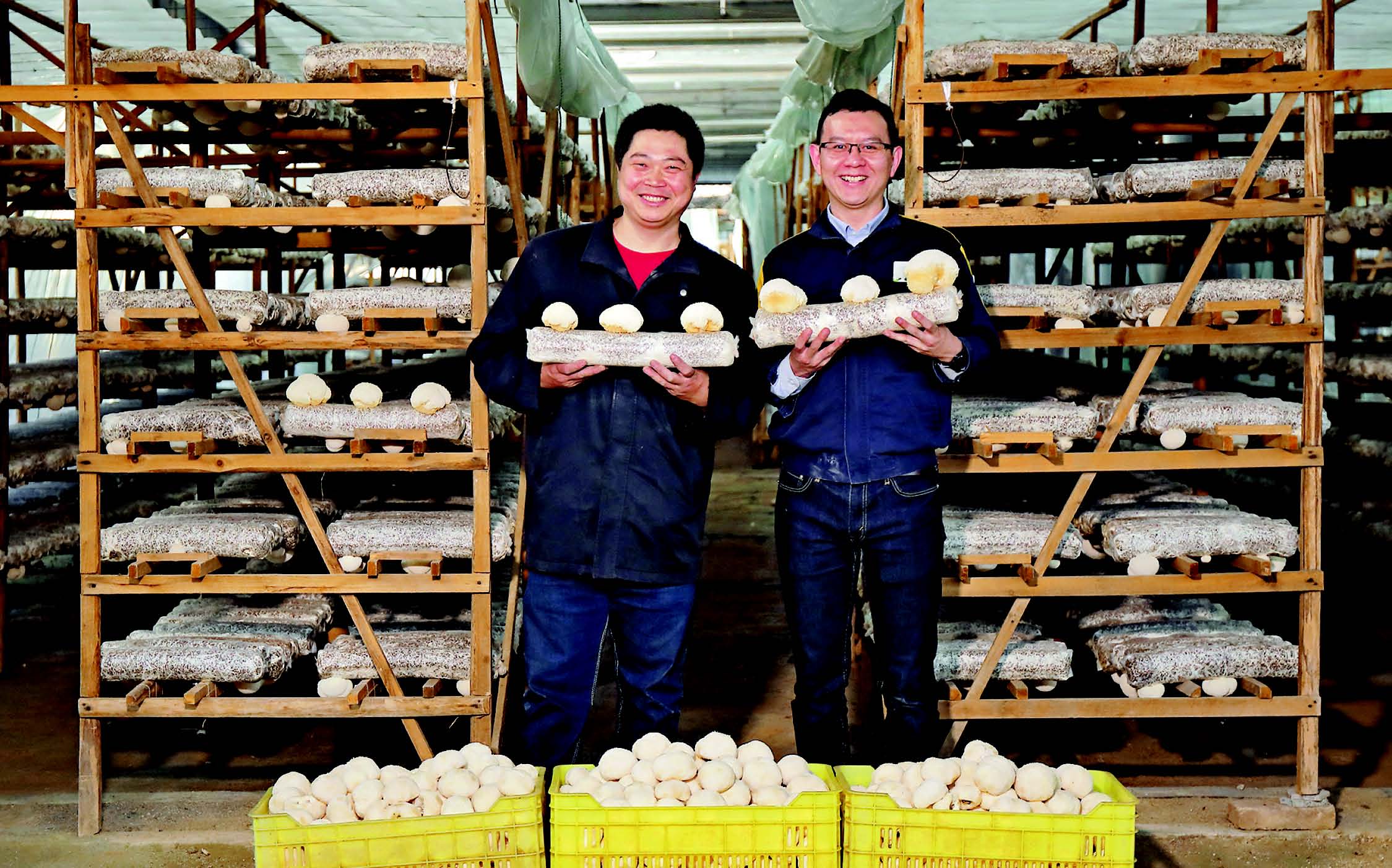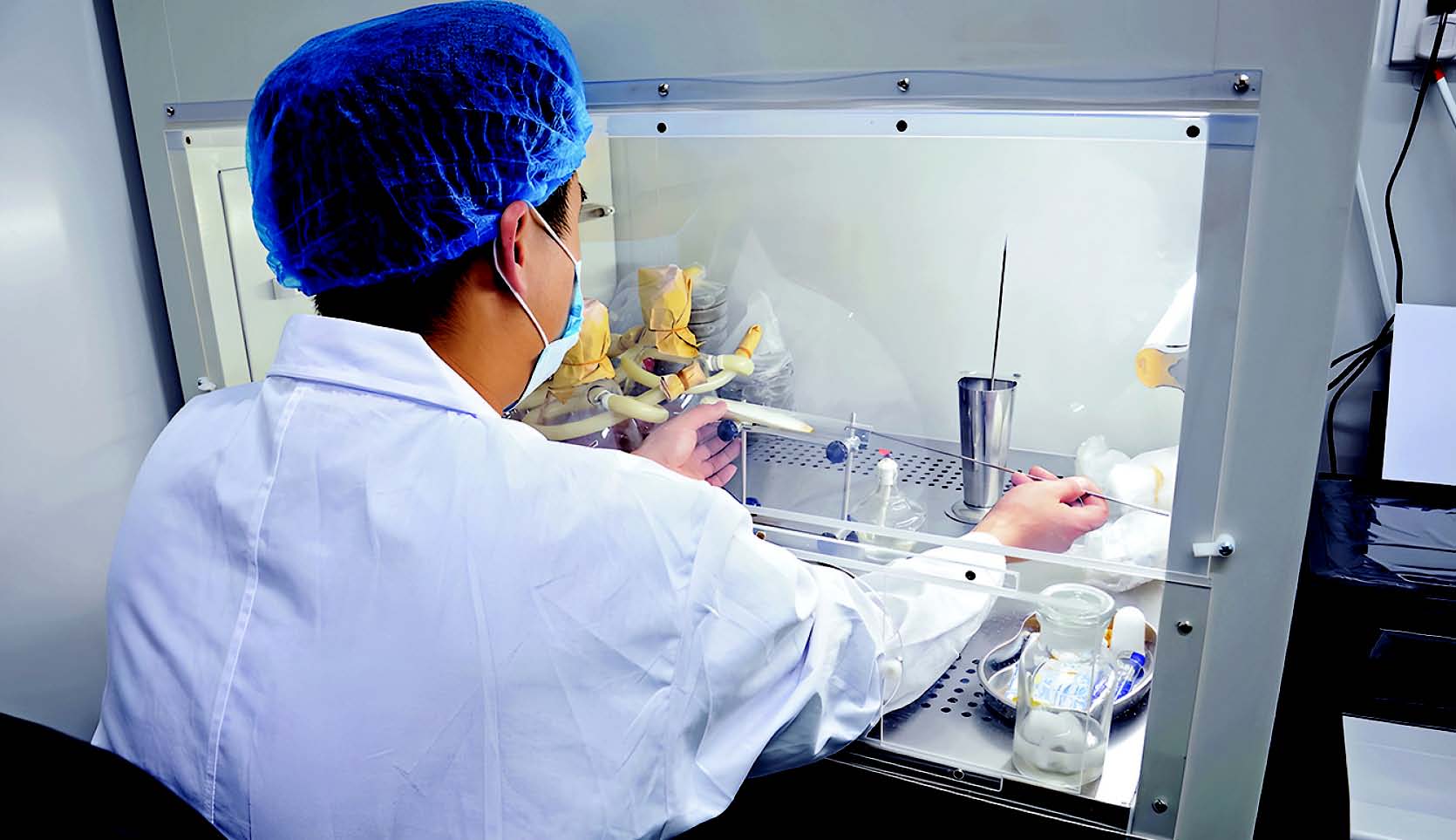

Labs to Lion’s Mane:
Young entrepreneur finds his bright future in funky fungi

Pang Xiaobo (right) and his colleage share a big smile with the harvest of the Lion’s Mane Mushroom. — Ti Gong
In the fields of Songjiang, a quiet corner of Shanghai, a young en-trepreneur has found his calling in the world of fungi.
Pang Xiaobo, a microbiologist turned business owner, is the driving force behind Shanghai Peiyuan Health Technology Co Ltd, a company that has made its mark by pioneering the cultivation and commercialization of Lion’s Mane Mushroom (Hericium erinaceus).
Known for its unique appearance and renowned medicinal properties, this mushroom has become the cor-nerstone of Pang’s entrepreneurial journey.
Pang’s journey began not in the world of business, but in the research labs of the Shanghai Academy of Ag-ricultural Sciences. After earning a master’s degree in microbiology, spe-cializing in medicinal fungi, Pang was captivated by the potential of edible mushrooms, particularly Lion’s Mane, a fungus with a striking resemblance to a lion’s mane and a reputation for its health benefits.
“Lion’s Mane Mushroom is not just a delicacy,” Pang said. “It’s packed with nutrients and known for its me-dicinal properties, from improving digestive health to boosting cognitive function.
“I saw an opportunity to cultivate it year-round in a controlled environ-ment, filling a gap in the market and making it more accessible to people who could benefit from its health-promoting properties.”
In 2010, armed with his research background and a vision, Pang found-ed “Peiyuan,” an agricultural brand focused on the cultivation and pro-cessing of Lion’s Mane Mushroom.
His ambition did not stop there. He wanted to create a business that could support the entire supply chain — from breeding and cultivation to research, product development and sales.
It wasn’t an easy journey. Lion’s Mane Mushroom is notoriously dif-ficult to grow, requiring a precise temperature, humidity and oxygen control to flourish. A minor mistake in the growing environment can result in the mushrooms turning misshapen, bitter and unsellable. Pang was undeterred.
After experimenting with small-scale cultivation, Pang set up a more advanced facility in Zhenjiang, Jiang-su Province, in 2017. By 2019, he had expanded to a 3,000-square-meter greenhouse in Songjiang, allowing for year-round production.
“The key is creating the right condi-tions,” Pang says. “Lion’s Mane needs stable temperature control, proper airflow and precise humidity levels. When everything is in balance, you get the perfect mushroom.”
Pang’s efforts were not just about perfecting cultivation; he was equally focused on the business side of things. In 2021, Peiyuan purchased the exclu-sive rights to a high-yield variety of Lion’s Mane Mushroom, “Hu-Hong 3,” developed by the Shanghai Academy of Agricultural Sciences. The acquisi-tion of this strain — an achievement that took years of research — al-lowed Pang to further differentiate his brand in the market.
“I’ve always believed in leverag-ing professional knowledge to build a niche. With the right product and research, we could offer consumers a premium, high-quality Lion’s Mane Mushroom that’s consistent, nutri-tious and full of health benefits,” Pang says.
Today, Peiyuan’s product line in-cludes a wide range of items: fresh mushrooms, dried mushrooms, snack foods, meal replacements and functional foods. Pang devel-oped products specifically designed for stomach health, such as pro-tein powder, breakfast cereals and probiotics.
These products cater to a growing market of health-conscious consum-ers who value functional foods for their preventive and therapeutic qualities.
One of Pang’s key strategies has been to connect Peiyuan’s brand with traditional Chinese culture. Inspired by the folklore surrounding Lion’s Mane Mushroom, the company cre-ated a charming cartoon character, “Hou Xiaonan,” to represent their brand. The character, dressed in tra-ditional attire, is featured on a series of collectible figurines. “We wanted to create a brand that not only promotes the health benefits of Lion’s Mane but also reflects the rich cultural heritage of China,” Pang said.
Peiyuan’s approach to branding and product development has resonated with consumers. The company has received positive reviews online, with its flagship Taobao store boasting a high customer rating of 4.8 stars and a 97 percent positive feedback rate.
This strong market presence has helped Peiyuan secure recognition as a national high-tech enterprise and has driven the company to further innovate within the field of edible fungi.
One of Pang’s future plans is to create a fully integrated, intelli-gent factory capable of large-scale, automated cultivation and deep pro-cessing of Lion’s Mane Mushroom.
Additionally, he plans to expand into offline retail, supplying hotpot restaurants, supermarkets and even the emerging tea beverage market.
“We want to make Lion’s Mane Mushroom accessible to more peo-ple,” Pang says. “We’re not just selling a product; we’re promoting a lifestyle — a healthy, balanced life that incor-porates the benefits of traditional Chinese medicine.”

A researcher is analyzing the nutrients of the medicinal mushroom. — Ti Gong
江苏路特数字科技有限公司 仅提供技术服务支持, 文字、图片、视频版权归属发布媒体

